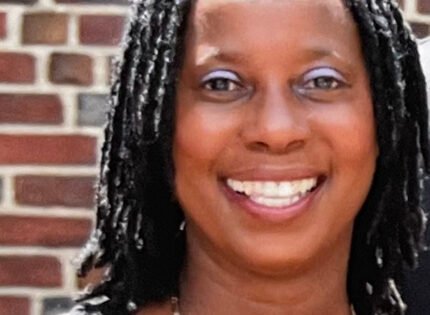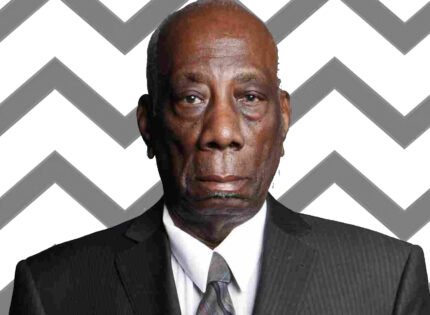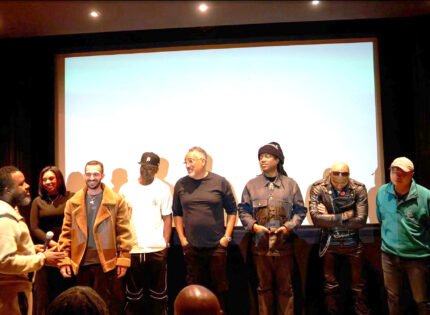As T.O. city council votes for police reforms
Rosie Awori (Local Journalism Initiative)
Black officers in the Montreal police department (SPVM) are speaking out against the “culture of silence,” that permeates within the force and sustains systemic racism.
In a letter to the Montreal Police Brotherhood, the nine Black officers expressed their surprise at the union’s president Yves Francoeur’s denial that systemic racism exists within the force.
The letter also stated that Mr. Francoeur doesn’t understand their reality and asked him to acknowledge its existence in order to address it effectively.
Earlier in June, Francoeur gave a series of interviews categorically denying any instances of systemic racism within the force.
Francoeur told French-language television station TVA, “I don’t think there is racism at the police-force level.” Additionally, he is quoted as saying, “I don’t know any officers who stop someone just because they are Black.”
In their letter, the officers underscored that the “culture of silence,” within the SPVM has kept their colleagues from speaking out against racism.
“We cannot blame you for not knowing our reality, if the culture of silence is for us the most common of the options in several situations,” the officers said in the letter.
“Recognizing a problem is the first step toward the solution,” they wrote.
In his written rebuttal, Francoeur maintained the same position. “The issues you raise in your letter are of great importance and complexity,” Francoeur admitted to instances of racism and discrimination in the force, but did not describe the problem as systemic. His response was similar to that of Premier Francois Legault who earlier dismissed the existence of systemic racism in Quebec.
“In the police context, many people understand the term systemic racism to mean that everyone is involved in some form of a deliberately racist system, which, in addition to being false, is outrageous for Montreal police officers,” Francoeur wrote.
“We have, therefore, abandoned semantics,” he added, “in order to avoid dividing ourselves over an expression.”
He also stated he would not make any further public comments on the issue.
At a news conference Sunday June 28, the Centre for Research-Action on Race Relations, who have been in contact with the Black officers, criticized Francoeur’s response and urged the union and police force to take concrete actions against systemic racism.
Alain Babineau, CRARR Advisor on racial profiling and a retired RCMP Officer, is quoted as saying, “In the police, ‘the code of silence’ and the fear of reprisals have often forced racialized police officers to remain silent about their work conditions that are sometimes very difficult because of their skin color. ”
“Historically, Black police officers have often faced discriminatory treatment within the service on the one hand because they are Black, and on the other hand, they often face contempt on the part of citizens, even Black citizens, because they are police officers,” noted Babineau.
“Just like Commander Patrice Vilceus, the ‘SPVM 9’ demonstrated extraordinary courage and integrity by asking the president of the union, in writing, to act on systemic racism. A new strategy is needed on the part of the SPVM and the Brotherhood so that the voices of their racialized officers are respected,” said Babineau, to whom several racialized SPVM officers have confided in recent weeks.
“We encourage the Brotherhood to meet with its Black and racialized members, and to commit to taking measures to remove the barriers to an equitable representation of the racial and ethnic diversity of its membership within its structure, especially within its executive council and union leadership,” he concluded.
CRARR also encourages the SPVM, to put tangible measures in place to better support and enhance the value of Black and other minority police officers, including recognition activities (such as the official celebration of Black History Month), measures on employment equity in promotion to management and commanding positions, and procedures for effective protection against discrimination and racial harassment in employment.
Meanwhile in Toronto, strong calls for police reform in that city have moved beyond talk about systemic racism.
On June 28, the Toronto city council voted in favor of a series of reforms to policing that have been identified as contributors to frictions between the department and the communities they serve.
After repeated instances of police officers resorting to violence including lethal violence against people in mental health crisis, as in recent cases of Regis Korchinski-Paquet, the Toronto woman who fell to her death in May during an interaction with police, as well as Ejaz Choudry, who was shot and killed by Peel Regional Police during a wellness check on June 20, city councilors voted for the creation of a non-police response team for mental health calls.
The council also vote in favor of mandating that all officers to have body-worn cameras by 2021.
What they did not vote in favor of is the highly contentious call for chopping the police more than a billion dollar budget by 10 per cent and reallocating the money to community service.
It’s a call that will continue to resonate as activists maintain that the current reforms by City Council don’t go far enough.
Black Lives Matter one of the leading voices in the Defund-The-Police movement calls for cutting the police budget by 50 per cent.
















